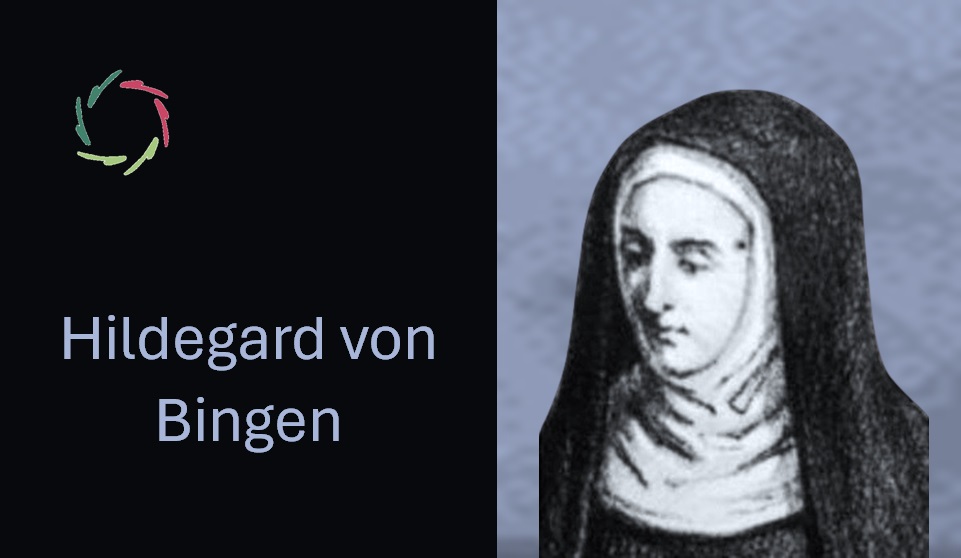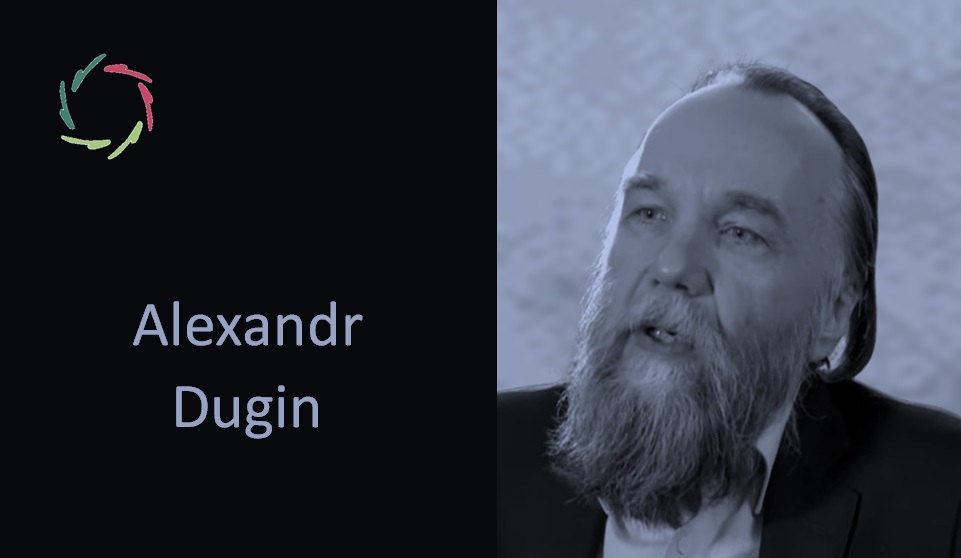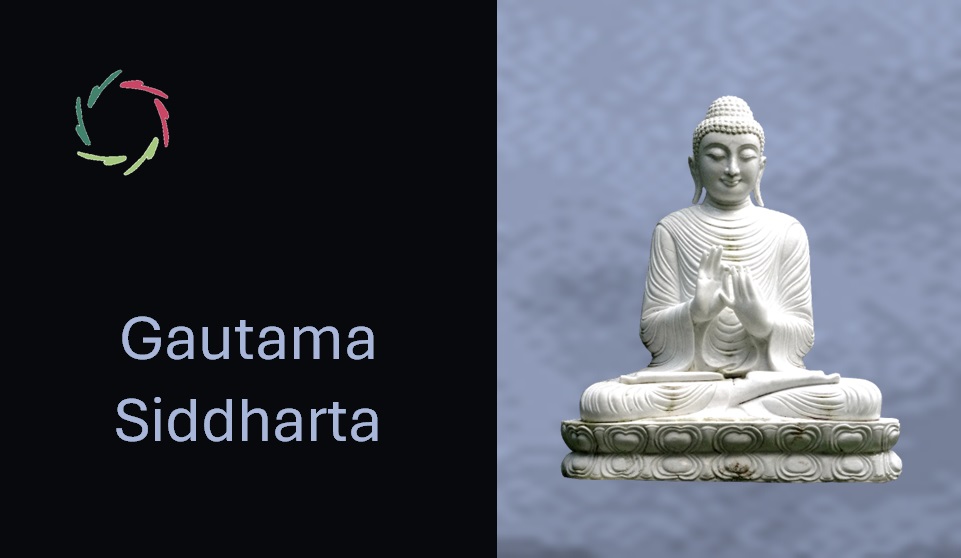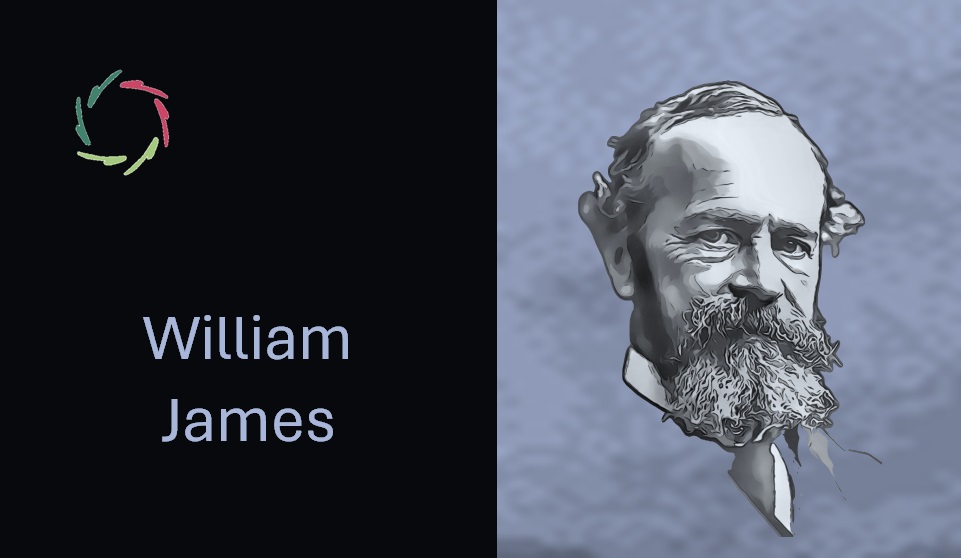Hildegard von Bingen

This is an Aurelian take on Hildegard von Bingen, a medieval polymath known for her contributions to music, medicine, and mysticism.
Introducing Hildegard von Bingen
Hildegard von Bingen (1098–1179), a German Benedictine abbess, was a visionary polymath whose influence spanned several fields, including music, theology, and natural science. Born in the Holy Roman Empire, she was recognized from a young age for her spiritual visions, which she later documented in works such as Scivias. Hildegard was a pioneering composer of sacred music, a prolific writer on medicinal and botanical subjects, and a revered mystic. Her holistic approach to health, emphasis on the interconnectedness of all living things, and visionary theological writings have made her a figure of enduring fascination and respect. Hildegard’s legacy is celebrated for its depth, breadth, and forward-thinking approach to spirituality and science.
Lisa’s ‘personal’ take on Hildegard von Bingen
Personal opinion “Hildegard von Bingen embodies an awe-inspiring amalgamation of spirituality, intellect, and creativity. Her life’s work challenges the often rigid boundaries between science, art, and faith, revealing the profound unity underlying all forms of knowledge. Hildegard’s holistic view of the world, where music, medicine, and mysticism intertwine, resonates deeply with the Aurelian values of depth, openness, and interconnectedness. Her visionary insights and her courage to express them, despite the constraints of her time, inspire a daring pursuit of truth and a deep appreciation for the complexity of the world.”
How I would like to be influenced “I am inspired by Hildegard’s unwavering conviction in her visions and her multifaceted genius. I would like to embrace her holistic approach to life, where spirituality informs science, and art acts as a conduit to the divine. Hildegard’s example encourages me to seek knowledge in its many forms, to listen deeply to the natural world, and to explore the spiritual dimensions of health and well-being. Her life challenges me to break free from conventional limitations and to cultivate a rich, integrated understanding of the world.”
In what may Hildegard von Bingen have been misunderstood?
Hildegard von Bingen, in her era and perhaps even in modern times, might be profoundly misunderstood due to the sheer breadth and depth of her contributions across various disciplines. Often celebrated primarily for her spiritual visions, the scientific and intellectual rigor behind her works on natural science and medicine might be underappreciated. Her holistic approach to health and the natural world, advocating for the balance and harmony of the elements, might be misconstrued as mere mysticism without acknowledging its practical, ahead-of-its-time insights into botanical studies and holistic health. This underestimation overlooks the revolutionary nature of her work, which seamlessly blends empirical observation with deep spiritual insight, challenging the artificial boundaries often placed between science and spirituality.
Parallels with AURELIS
- Holism: Hildegard’s approach to health and healing, emphasizing the balance and interconnectedness of body, mind, and spirit, mirrors AURELIS’s holistic view of well-being.
- Innovation: Her contributions to various fields, breaking new ground in each, reflect AURELIS’s commitment to innovation and expanding the boundaries of understanding and practice.
- Nature: Hildegard’s deep reverence for nature and its healing powers parallels AURELIS’s emphasis on the natural, inherent capabilities of the mind and body for healing and growth.
- Spirituality: Both Hildegard and AURELIS value the role of spirituality in understanding and navigating the human experience.
- Music: Hildegard’s use of music as a healing and spiritual tool resonates with AURELIS’s use of metaphor and suggestion in facilitating psychological and emotional well-being.
- Vision: Her visionary experiences and their integration into her work align with AURELIS’s emphasis on the potential of the mind to reveal deep insights and pathways to healing.
- Empowerment: Hildegard’s life as a model of intellectual and spiritual autonomy reflects AURELIS’s goal of fostering autonomy and self-determination in individuals.
- Interconnectedness: The theme of interconnectedness in Hildegard’s work, seeing the world as a web of relationships, mirrors AURELIS’s view on the interconnectedness of psychological, physical, and social health.
- Creativity: Her creative output, transcending traditional boundaries, parallels AURELIS’s approach to combining diverse methodologies and insights for holistic well-being.
- Education: Hildegard’s efforts to educate and disseminate her knowledge align with AURELIS’s commitment to spreading awareness and empowering individuals through knowledge.
Dissimilarities
- Historical Context: Hildegard’s work is deeply embedded in the Christian mystic tradition of the Middle Ages, while AURELIS is rooted in contemporary psychological and philosophical thought.
- The Role of Gender: Hildegard navigated and transcended the gender constraints of her time, whereas AURELIS operates in a context that, theoretically, offers more gender equity.
- Scientific Methodology: Hildegard’s empirical observations were pioneering yet pre-modern in methodology, contrasting with AURELIS’s grounding in contemporary scientific research and evidence-based practices.
- Communication Medium: Hildegard utilized visionary literature and music to communicate her insights, while AURELIS employs modern digital and textual formats for wider accessibility.
- Religious Framework: Hildegard’s work was framed within the Christian theological perspective, whereas AURELIS maintains a secular, universally applicable framework.
The possible view of Hildegard von Bingen on AURELIS
- Positive feedback: Hildegard would likely appreciate AURELIS’s holistic approach to health and well-being, its innovative spirit, and its respect for the interconnectedness of all aspects of life, reflecting her own integrative vision.
- Element of critique: She might suggest a deeper engagement with the spiritual and mystical dimensions of human experience, emphasizing the transformative power of visionary insight and the sacredness of nature in achieving true well-being.
Conclusion
Hildegard von Bingen’s life and work offer a luminous example of the integration of spirituality, science, and art, charting a course that transcends the limitations of her time and prefigures many contemporary understandings of holistic health, the power of music, and environmental stewardship. In her, we find a kindred spirit to the AURELIS project, sharing a profound belief in the potential of the human mind and spirit to navigate complex realms of experience and knowledge. Her visionary perspective and multidisciplinary achievements encourage a broader, more integrated approach to well-being, resonating with AURELIS’s goals of fostering autonomy, depth, and an open exploration of human potential. Drawing on her legacy, we are reminded of the value of embracing a multifaceted understanding of the world, where science and spirituality, body and mind, and human and nature are seen as fundamentally interconnected. Hildegard’s example challenges us to continue pushing the boundaries of what is known, seeking harmony within ourselves and with the world around us, inspired by her unquenchable thirst for knowledge and her profound reverence for the web of life.
Twenty concepts that may make one think of Hildegard von Bingen
- Medieval polymath
- Visionary mysticism
- Sacred music composer
- Botanical medicine
- Spiritual visions
- Benedictine abbess
- Holistic health
- Nature’s interconnectedness
- Christian mysticism
- Theological writings
- Scivias
- Liber Vitae Meritorum
- Healing through harmony
- Cosmic unity
- Monastic reform
- Herbal remedies
- Ecclesiastical authority
- Liber Divinorum Operum
- Gregorian chant innovator
- Environmental stewardship


